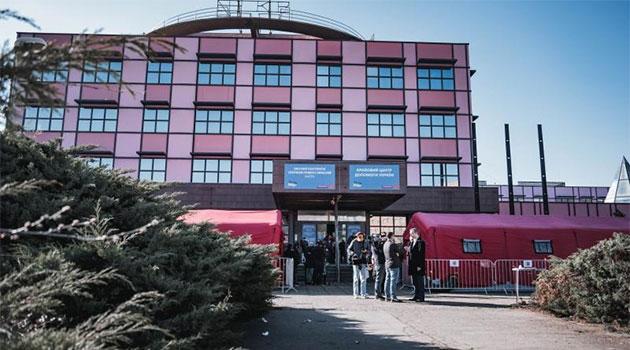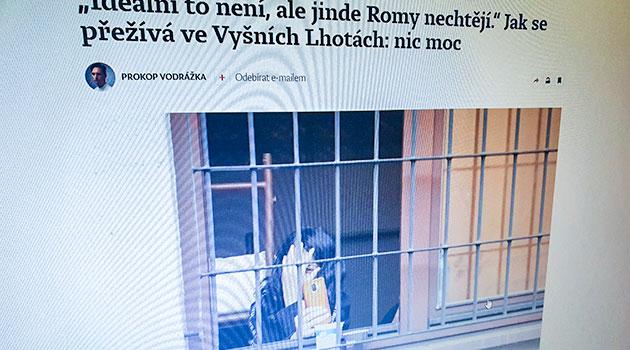Prague asks the Czech state for aid with accommodation of groups of Romani refugees from Ukraine, mayor says the state's effort has failed so far

Prague City Hall is asking for aid from the Refugee Facilities Administration with accommodating groups of Romani refugees from Ukraine and claims it does not have enough suitable accommodation capacities for them; at the same time, the city will be expanding its workplace on what is being called “secondary accommodation” for refugees who have had to move out of the housing initially provided to them. Mayor Zdeněk Hřib (Pirates) and the director of the Firefighter Corps in Prague, Luděk Prudil, announced this information to reporters in the capital yesterday.
According to the mayor, there are just a few dozen beds that can be used for Romani refugees from Ukraine in Prague. He believes they must primarily be taken care of by the Refugee Facilities Administration.
“We will ask the state to find more capacities. However, the current efforts of the state to ensure sufficient capacity for these groups have failed,” the mayor said.
“This is a fundamental problem that we will not be able to solve from our position as a region,” said Hřib. How many such groups are exactly in the capital is not entirely clear.
“We start from what we see at the assistance center or at the main train station,” Prudil said. “So, for example, the information from today [Editor’s Note: Tuesday, 3 May 2022] at 5 AM was that there were 330 Romani refugees in those places.”
The city is also preparing for a growing number of people looking for “secondary accommodation”. This term applies to refugees who have had to leave the first housing offered to them even though they would have preferred to remain there.
“We have to make sure these people don’t end up on the street,” the Mayor of Prague said. “It will be necessary to strengthen all of this, because in the coming days there may be an increase in the number of people who need housing.”
In the city center, firefighters will provide such people with new housing. The branch of the refugee service in the Škoda Palace will stay in place so people can find new housing there.
There is also a growing number of refugees from Ukraine returning to the information kiosk at the main train station which, however, is meant to serve just as an initial contact point. “This will be solved by a narrower working group of the crisis staff,” Hřib said.
It is unclear how many refugees will need “secondary housing”. The city said it lacks accurate data, for example, from the ministries.
Prague will also start remunerating volunteers and setting aside several tens of millions of Czech crowns to do so. “This is money for the people aiding us, including retrospectively,” the mayor said.
“It will be paid on the basis of hours worked,” said Hřib. There will be three pay rates, with the lowest, CZK 100 [EUR 4] per hour, paid to volunteers who, for example, prepare food; interpreters and other professions will receive CZK 120 [EUR 5] per hour and doctors will receive CZK 150 [EUR 6] per hour.
